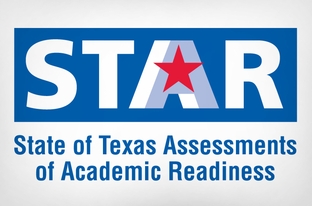A majority of students at the top-rated high schools in Texas are likely to need remedial course work when they get to college because they don’t score well enough on entrance exams, a Hearst Newspapers analysis of newly released school accountability data shows.
More than 900 high schools in the state received the equivalent of an A or B rating from the state last month. But the analysis shows that at two-thirds of those schools, the majority of students are failing to score high enough on the SAT or ACT to be considered “college ready,” increasing the chances that they’ll need remedial course work in college and jeopardizing their chances of getting a college diploma.
The low number of Texas students who are adequately prepared for college has emerged again as an issue as state lawmakers study education funding this fall, in preparation for the Legislative Session, which starts in January. At a meeting Tuesday, education committee chairman Sen. Larry Taylor, R-Friendswood, and Rep. Dan Huberty, R-Houston, recommended giving more money to schools for each student who scores college-ready on the entrance exams.
Another group of lawmakers studying the performance of Texas schools, including Rep. Diego Bernal, D-San Antonio, recommended that Texas do away with the STAAR test, the state standardized exam, and instead use the SAT or ACT to hold high schools accountable.
The state’s top education official says Texas is steadily raising the bar for what students are expected to learn, and schools are improving.
But education experts say the combination of high ratings and low college readiness scores exposes a major flaw in the state’s accountability system. They say the gap is proof that lawmakers are placing too much emphasis on improving scores on the STAAR and high school graduation rates, rather than on preparing students for what happens after they finish high school.
“To get an A means this school is doing a good job of getting an increasing number, and a majority number, of its students ready for the next stage in life,” said Sandy Kress, a former senior adviser for George W. Bush and one of the architects of No Child Left Behind, the law that brought accountability ratings to schools across the country. “You have no business getting an A if you can’t tell me that.”
I don’t know what the answer is for this, though I have a pretty good guess that it would involve spending more money up front and across the board. I do know that our state will suffer from the lack of truly college-ready students, and the students themselves are being poorly served by schools that aren’t doing what they could and should be doing. Meanwhile, Greg Abbott is busy running ads claiming credit for everything under the sun. Maybe someone should ask him about this.


For over 30 years the schools teach to a test, rather than critical thinking (How to arrive at the correct answer). Why would anyone expect students to do well in other type of tests?
The Republicans have been in control of the testing, they know how to screw everything up. The U.S. is now on a trillion dollar deficit a year for the next 10 years.
When the Democrats take over they will have to do what responsible people do, increase income and decrease purchasing.
Agree. The outcome described belongs to the Bush/Perry/Abbott GOP which has dictated Texas Public Education. Kids know how to bubble, but constructing an essay is something else. When I see Sandy Kress name, I smell the game. High stakes testing.